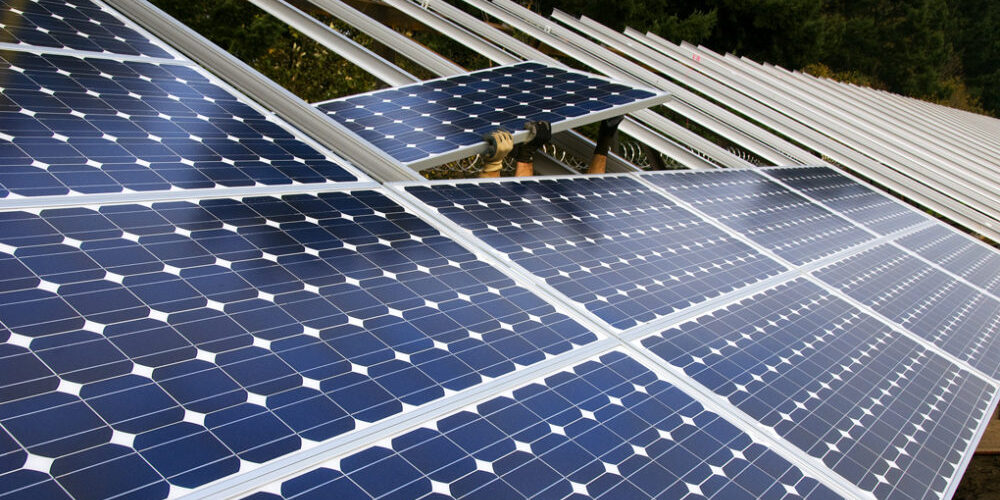On Wednesday, RENEW Wisconsin’s Policy team submitted comments to the Public Service Commission (PSC) in response to the Lawrence Berkeley National Laboratory’s (LBNL) review of the Value of Solar Studies (VoSS). These comments represent a critical step toward shaping the future of solar energy in Wisconsin, with several organizations, including 350.org, the Wisconsin Environmental Initiative, Northwind Solar, and Appleton Solar, joining RENEW in support of these recommendations. Other organizations and utilities also submitted separate comments.
The context for this study and the review stems from rate case proceedings in the fall of 2023 involving Alliant Energy and Madison Gas & Electric (MGE). These rate cases included proposals to reduce or eliminate the current Net Energy Metering (NEM) policies for solar customers in these two utility territories. If approved, such changes would have reduced the financial benefits for consumers with solar arrays at their homes or businesses. These proposals were ultimately rejected by the Public Service Commission of Wisconsin (PSC), and the Commission agreed to gather more information in a separate statewide investigatory docket. Last year, the PSC began working with Berkeley Lab and other national lab staff on a VoSS to better understand the full benefits of distributed solar energy to the grid and the economy.
RENEW’s comments offer key recommendations to strengthen solar policy in Wisconsin, ensuring it supports sustainable growth and a fair, data-driven approach to valuing solar energy. Here are the main points highlighted in RENEW’s submission:
- Gather utility data required to estimate solar adoption rates
Accurate and comprehensive data are essential for determining solar energy adoption rates across Wisconsin. RENEW recommends that the PSC gather data from utilities, formulate methodologies, and report on solar adoption rates. This will enable policymakers to make informed decisions on future solar policies.
- Decide whether an independent VoSS is appropriate for Wisconsin at this time
Before pursuing an independent Value of Solar Study (VoSS), RENEW recommends that the PSC assess whether such a study is appropriate for Wisconsin at this time. This evaluation should consider the unique circumstances of the state, including its zero-carbon energy goals and economic landscape.
- Create more robust and consistent NEM policy throughout Wisconsin
RENEW advocates for the development of more robust and consistent Net Energy Metering (NEM) policies across the state. NEM is a cornerstone of Wisconsin’s solar energy development, and strengthening this policy will help ensure fairness and consistency for solar customers.
- When appropriate, establish a VoSS stakeholder process and methodology to consider all values presented in the LBNL VOSS Review
When the time is right, RENEW recommends adopting a fair, transparent, and
stakeholder-driven approach to a VoSS. This process should consider all the values outlined in the LBNL VoSS Review (economic, environmental, and grid-related) to ensure a comprehensive understanding of solar’s full benefits.
- Contract with a third-party VoSS consultant using a stakeholder-driven review process
To ensure a fair and credible outcome, RENEW urges the PSC to engage an independent consultant to assist in leading the Value of Solar analysis. An experienced third-party expert can provide objective insight and guide the process in a way that respects the input of all participants, including utilities, customers, advocates, and other stakeholders.
- Establish either a statewide or utility-specific VoSS driven by data
RENEW supports the creation of a statewide or utility-specific VoSS that is grounded in data and accurately reflects the value solar brings to the grid. This study should be informed by the utility data and stakeholder feedback gathered throughout the process.
- Establish a glide path towards VoS tariffs only when NEM solar adoption rates increase to 10% in utility service territories
Finally, RENEW recommends a gradual transition to Value of Solar (VoS) tariffs, with a clear glide path based on solar adoption rates. Specifically, the transition to VoS tariffs should occur only when solar adoption reaches 10% in utility service territories.
Next Steps: Stay Tuned for Updates!
At this time, the PSC has not announced the next steps as the investigation remains open. However, the PSC will likely take up a verbal decision on the next steps soon. We’ll keep a close eye on the process and share any important updates with you as they happen.
Stay tuned for further developments as we continue to push for policies that support a clean, sustainable, and equitable energy future for Wisconsin.

